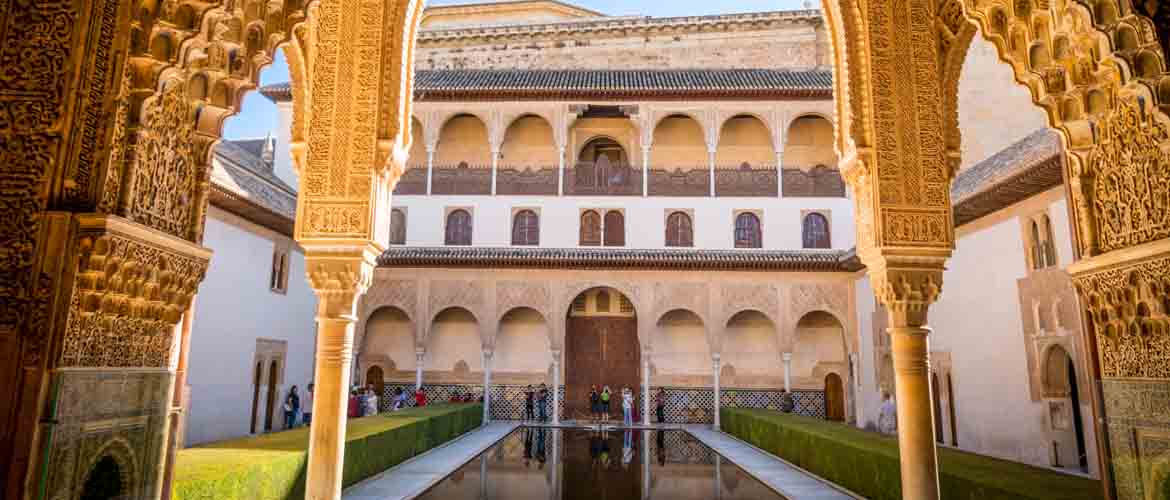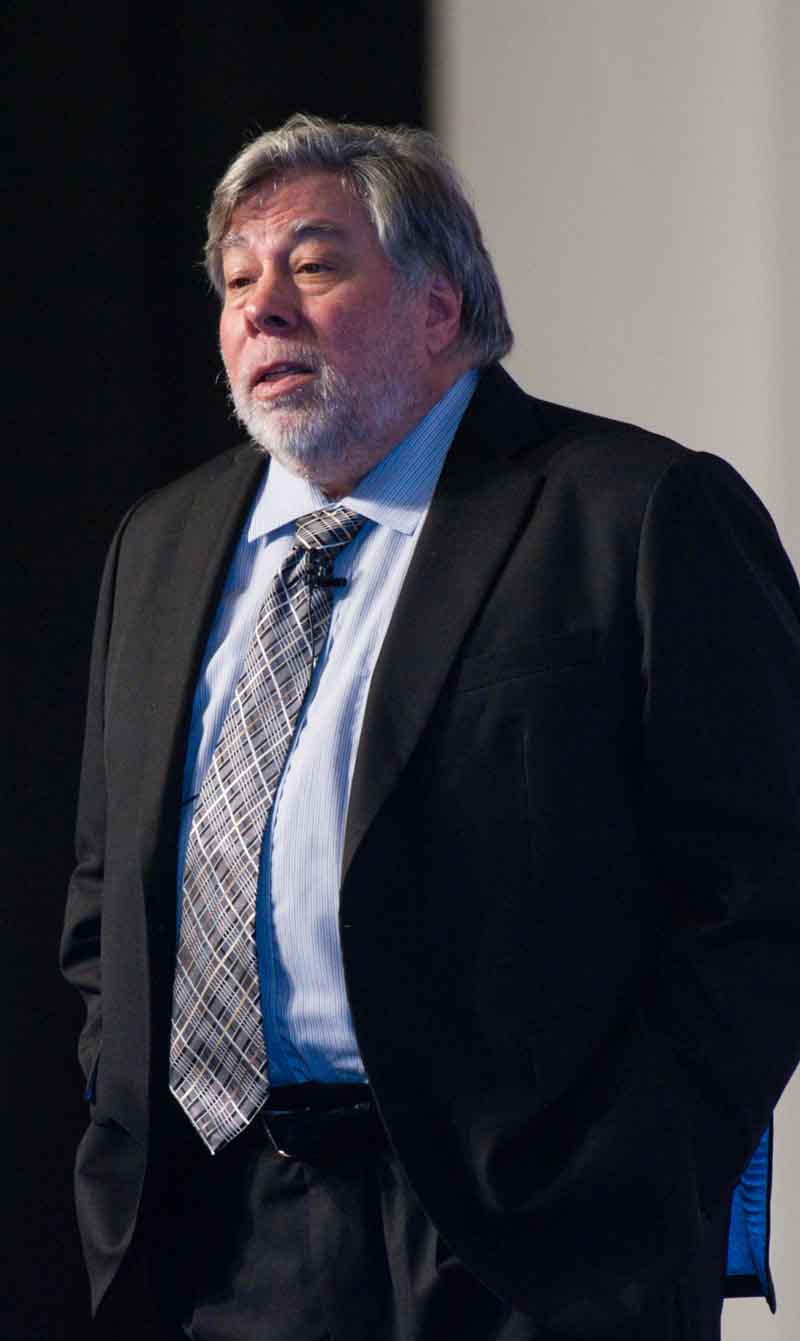Spain: Looking into a halal industry
Meat, one of the largest exports that exist in Spain, was just one of the investment opportunities looked into by halal experts during the WIEF Roundtable in 2015. Here’s a recap of their discussion on Spain’s halal prospects and opportunities.
Dr Imran Kausar, founder of the Halal Food Festival in United Kingdom, began the WIEF Roundtable session in Spain with a question: why should the halal industry work for Spain? ‘The Spanish market is a strong market, particularly from the perspective of exports of automobiles, citrus and olive oils. Spain has a tremendous amount of experience in exporting agricultural products. Meat is one of the largest export opportunities that exist,’ he said.
He added that Spain had a very strong economic and legal framework. ‘This [legal framework] is very important in the context of attracting investment and businesses. Spain has geographic proximity to North Africa, the Middle East and indeed the whole world. It also has a strong Islamic heritage and legacy,’ he said.
Dr Imran stressed that the halal trade was an important opportunity for Spain, as it was a big market that was growing every day. ‘Growth within the halal segment outpaces growth in any other part of the food business. According to forecasts, the halal food sector will be worth USD1.8 trillion by 2018 and its proportion of the overall food market is going to increase from 15 per cent to 17.5 per cent.’
‘The top five countries that export to the OIC are the United States, Brazil, the Netherlands, Germany and Australia. Spain should be part of this as well,’ said Dr Imran.
He identified the four fundamental elements that Spain would need in order to enter the halal industry: halal certification, access to markets and customers, investors and capital, as well as competitive products and services.
Think like Steve Jobs
Dr Imran elaborated on the need for Spain to develop competitive products, urging the country to ‘think like Steve Jobs’ who branded and marketed Apple’s products in a completely different way even though they were existing products entering an already competitive marketplace.
‘Countries that have better brands will have better investment opportunities, growth opportunities, educational opportunities, and more people will want to buy their products. It is not just a single product that is competing-it is the perception of Spain as a country. You need to be able to manipulate that to maximise it,’ he said.
Like any other form of business, achieving success in the halal industry requires an understanding of what customers want, no matter which part of the world they are in. ‘You’re not just selling meat to Muslims. How will you sell it to customers in Bangladesh, Indonesia, the GCC countries, Turkey or the United States? You need to be very clear on who your target segment is and how you intend to attract them,’ Dr Imran said.
‘For value creation, to turn yourself into the next billion-dollar segment, you need to make sure you have deep consumer insights, innovative products, superior branding and continually improve your business. The marketplace doesn’t rest-your competition will come from China, Brazil and other countries that are attacking the same growing market. ‘Spain, you need to be prepared,’ he said.
Koen De Praetere, the chief executive officer of Halal Balancing in Belgium, spoke about the importance of implementing halal certification in order to capitalise on the Muslim market.
‘A lot of growth is happening in Muslim-majority countries. If you want to take part in that growth, it’s better that you are able to sell to those countries because they are still importing from a lot of non-halal Muslim-minority countries such as those in Europe,’ he said.
Koen noted that Europe had an excellent opportunity to take part in that trade because the region had a very advanced infrastructure for manufacturing, including good safety and quality systems. However, the lack of halal certification could pose an entry barrier to Muslim-majority countries.
Halal documentation
Koen reminded that the Muslim community was diverse; therefore, it was important for Spain to learn about their customer base and target market’s expectations. ‘Once you know their expectations, then comes the second part: implementing it.’
He said that the chain of trust was important for Muslims buying products so that they could be assured of what they were purchasing.
Koen stressed, however, that halal was only an entry ticket to the Muslim market: ‘It is not the winning ticket. You still need to have a very good business case based on a halal foundation.’
A case study of the UAE’s halal certification process was presented by Khalid Mohamed Sharif Alawadhi, executive director of the Food Control Department, Dubai Municipality.
‘In the UAE, halal certification now comes under the Emirates Authority for Standardization and Metrology (ESMA), which approves any halal food coming into the country. The plan for the future is that the Dubai Accreditation Centre will accredit all the Islamic bodies in the world that fulfil our halal requirements,’ said Khalid.
He explained that the process began with certifying that the product had been sent to the laboratory in its country of origin to ensure that it complied with halal standards and specifications. The halal certificate must be issued by the Government of the country of origin and must be approved by ESMA.
‘The documents required for imported halal foods are the bill of entry, awareness bill, package list, health certificate, and lastly, the halal certificate for meat and meat products. The halal label must be clear and easy to read, difficult to remove, as well as specify the source of animal fat, meat, enzyme, gelatine or any other animal product,’ Khalid said.
The discussion then moved to an overview of Spain’s food and drink industry presented by Horacio González Alemán, advisor to the Deoleo Group in Spain. He began with a brief look at the potential of the agrifood sector in Spain.
‘Spain is one of the big five players in the agrifood sector at the European level. The combination of support from the Common Agricultural Policy (CAP), funding from the European Union and private investment has led to a modern, efficient and very well-equipped agroindustrial system in Spain,’ said Horacio.
Spain tops the list in Europe for sectors such as olive oil, fruit and vegetables (preserved and fresh), juices and tinned fish. Other sectors such as bovine meat, poultry and lamb, and animal feed, also top the list in the EU thanks to an extensive model of production.
‘In terms of turnover, Spain’s agrifood industry reached EUR93 billion in 2014. There are more than half a million employees in the agrifood sector. In the last seven years, our industry has managed to shift from a flat domestic market to a high degree of internationalisation, with exports accounting for more than a third of the total turnover and an average annual growth of more than five points,’ Horacio said.
Various halal ways
Among the top 20 Spanish export markets were China, India, the US, Saudi Arabia, Turkey, Algeria and Morocco. Horacio also spoke about the importance of variety and culture in Spain’s food system. ‘The food system is much more than facts and figures or just a way to feed people. Our two main strengths are variety and culture. In terms of variety, we produce almost every kind of food in Spain, including olive oil, dairy products, cereals, sunflower oil, meats, fruits and vegetables.’
Furthermore, Spain’s gastronomical culture was recognised all over the world based on its national production as well as its long heritage in which Islam was one of the pillars.
Horacio also discussed Spain’s economic recovery: ‘Spain is entering a recovery phase. In 2015, it is estimated that there will be a three per cent increase in GDP, as well as the creation of half a million jobs. We have low inflation of around 0.5 per cent. The quantitative easing policy put forward by the European Central Bank is giving liquidity to the whole system. Energy prices are also helping and the recovery of national consumption as well as strong exports brings us to a new phase,’ he said.
The Spanish agrifood sector was thus very well positioned to take advantage of this new environment as it was almost self-sufficient in many agricultural commodities and able to have free movement of goods, capitals and persons all over Europe without having to pay duties or taxes.
According to Horacio, the Spanish Government has implemented a new law on cooperatives that would see the many agricultural cooperatives in the country combined in order to promote growth, a better market position and profitability.
Tourism also offered Spain a tremendous opportunity to develop its food industry. ‘More than 67 million people visited Spain in 2014, [so] Spain is not obliged to export its products for others to know about it. The 67 million people who come to Spain every year have the opportunity to test and to know its products, culture and gastronomy. Spain should exploit this strong relationship in order to increase food consumption and sales both in Spain and abroad,’ Horacio concluded.
Wrapping up the session, moderator Juan Luis González, director-general of Orange3 in Spain, said that Spain had to create its future in the halal industry. ‘We are generating EUR1 billion through the global halal food economy, which only represents two per cent of the industry. We have the food, the country, the culture and the legacy to create the future.’
___________________
This is based on a report from a WIEF Roundtable in 2015.
Photo Credit: Austin Gardner





